Anton Soini
Nascimento : 1888-12-09, Iisalmi, Finland
Morte : 1961-04-29

Aitamaa
Dr. Aitamaa is spending holiday with his family at their summer villa. He accidentally reads a letter that was meant to his wife. The letter is from another man. Aitamaa follows his wife to the city and finds out that she has a lover. Later the wife is found killed and Aitamaa becomes the prime suspect.

Eemeli's Father

Worker
A closed room mystery begins when an infamous tycoon is found dead in his bath tub. The famous police lieutenant Palmu is summoned to investigate.

Rantanen

(uncredited)
Directed by Ville Salminen and written by Reino Helismaa, the musical comedy film Kaks tavallista Lahtista (1960) tells the story of two friends about Usko (Tommi Rinne) and Toivo (Leif Wager), both of whom happen to have same surname, Lahtinen.

The headmaster of a private girls' school is doing her best to maintain strict discipline in the school. In addition to the loosening morals of the students, the warm relationship between two girls is a causing concern.
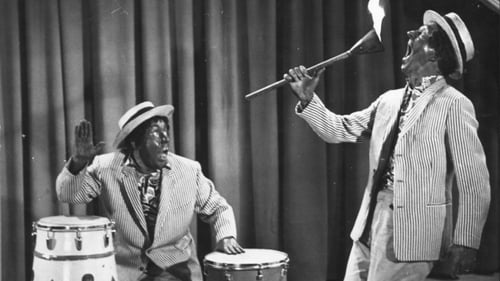
(uncredited)
Pete and Runt misinterpret the messages of a career choice machine and try to create a career as African dancers.

(uncredited)

Nestori

(uncredited)
Wintery forest and stubborn 16 year old girl dazzle the teacher from Helsinki.

(uncredited)

A man in the meeting
The story of the first elections in Finland

An ex-finnish army officer Kari Kivi returns to Finland after 12 years of absence. He is quickly hired by a businessman named Östermalm to be his stand-in to escape the ring of spies threatening his life. Many beautiful women cross Kivi's path before the spy ring is eventually crushed.

For six hundred years Sweden had controlled most of Finland until the war with Russia that ended in 1809, when Finland became a Grand Duchy of the Russian Czar. This period drama is set during that early 19th-century war and focuses on one of its heroes, Sven Tuuva. Sven is a decent yet not too brilliant soldier, and his exploits are partly balanced here by the charms of a compatriot.

(uncredited)
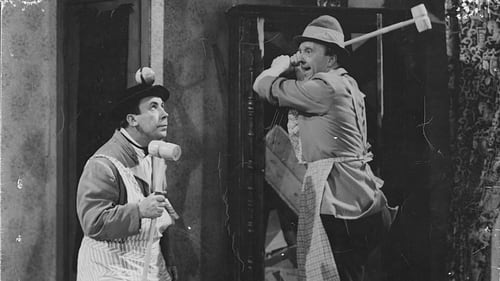
(uncredited)

Anton (uncredited)

Unveiler of portrait (uncredited)
After the death of his long-time housekeeper, a meticulous assessor has trouble finding a new one.
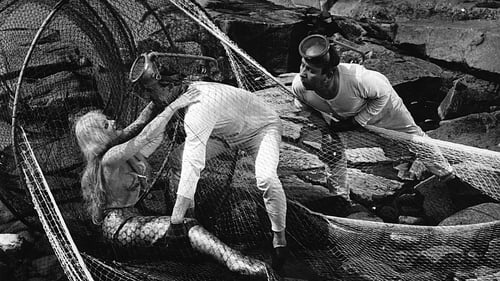
V.P. (uncredited)

Rissanen
The last black-and-white film in the Niskavuori series of movies.
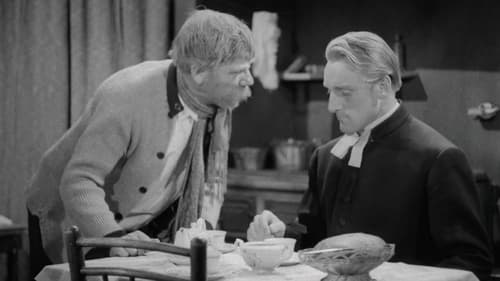
Täi-Janne
Pastor Samuel Bro has lost his faith in God. He is in conflict with the Church Council and is rejected from his priesthood. He moves away to a different life.

Neighbor (uncredited)
Marjatta lives in poor conditions in Tampere with her widowed father Arttu who works as a factory worker. Marjatta gets to know engineering student Pauli whose constantly worsening mental health problems and jealousy become a threat to Marjatta and her close circle.
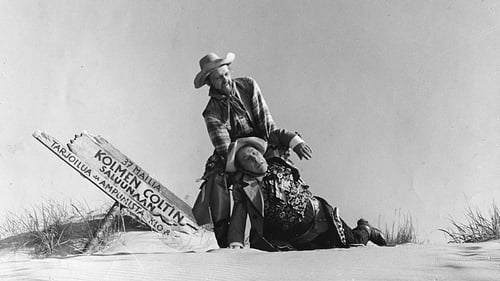
(uncredited)

Set in early 16th century Finland, a knight Olavi Gideoninpoika meets Mirjam Raakelintytär and falls in love. Mirjami hides in a monastery disguised as a choir boy, but is revealed by a monk Rasmus, who also desires her, and is put on trial.

Esko is going to a neighboring village to marry Kreeta after her father arranged the marriage with Esko's father. Esko takes Mikko as his travel companion and that's where Esko's ordeals begin.

(uncredited)
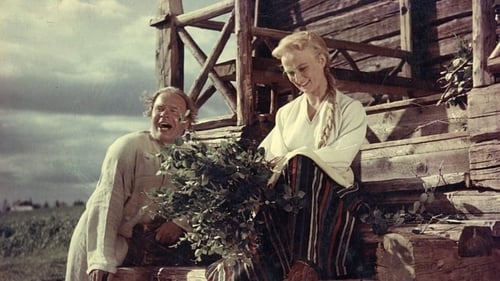
Uhtualainen (uncredited)
Juha lives together with younger woman Marja. Juha loves her, but Marja seems to belong to somewhere else. Things get complicated when casanova Shemeikka arrives from strange lands and takes Marja away with him.

Tahvo Kiesi
Evakko is a portrayal of Soviet-Finnish winter war of 1939/40 and the associated evacuations in different parts of the country. It tells the story of a Karelian family along with their whole village who were forced to leave their homes because of the war. The film has a surprisingly perky tone for the subject matter.

Janitor
Our Common Wife (1956) is a comedy directed by Valentin Vaala, based on the play by Arijoutsi. The film is set in post-war Helsinki, where the last released prisoners of war arrive. They are accompanied by Captain Erkki Lahtinen (Kosti Klemelä), who returns to his home and back to his wife Jenni (Marjatta Kallio). However, during his four-year imprisonment, Erkki has been pronounced dead and Jenni has remarried to office manager Nevamaa (Eero Eloranta).

Kievarin, host
Maria Toikka is called to testify in a trial in which her husband Ville is charged. The assurances show the events that led to the trial from the previous fall, when Patron Oppman begins to approach Maria, offering her money in return for services.

Man at store
Tyttö tuli taloon (1956) is a comedy film directed by Veikko Itkonen and written by Roy (Tapio Vilpponen). The film parodies the production methods of Finnish cinema of the time. Hitchhiking girls Eila (Heidi Krohn) and Tilly (Maija Karhi) end up at screenwriter Saku's (Joel Rinne) summer house by mistake, thinking it's their cousin's.

Blind Musician (uncredited)

Pellonpää

(uncredited)

Blind Man (uncredited)
A lock factory worker Pertti would like to marry his girlfriend Verna, but fears they don't have enough money. His brother Martti is a member of a youth gang that is planning a robbery with three other young men. When the boys have to flee at the time of the robbery, Pertti who secretly shadowed them sees an opportunity to solve his money problem.

(uncredited)
A wide-eyed doll salesman is mistaken for a bomb-wielding anarchist by the oppressive forces of the totalitarian state.

(uncredited)
A farm boy leaves his sweetheart Eliina and moves to the city for a relationship with Laila, a summer guest at the farm.
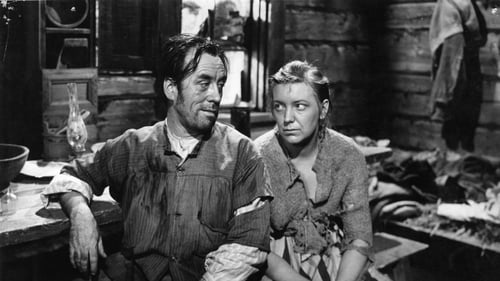
Kötys-Heikki
Jooseppi Kenkkunen becomes a moonshiner in order to provide for his wife Kaisa-Reetta and his large family during the Prohibition era in Finland.

A Finnish comedy from the 1950's, and a remake of director Valentin Vaala's earlier film The Substitute Husband (1936).

(uncredited)

(uncredited)
Justina urges Pete and Runt to get a job. As a result they meet an orphan boy named Otto while working as a park nannies. They offer to shelter the boy, but at the same time the father Antti, who has returned from the sea, is looking for his son together with Miss Raikas.

Stationmaster Janatuinen

(uncredited)

(uncredited)

(uncredited)

Liippanen

Juho (uncredited)
The everyday life of the small village is mixed when a fire breaks out the night after the party. The cooperative manager and fire manager alerts the young judge Heiki to the extinguishing work, but due to the confusion, extinguishing the fire turns out to be more complicated than expected.

(uncredited)

(uncredited)

(uncredited)
A fictional love story between famous composer Gabriel Linsén and opera singer Maria Sawina in 19th century Finland.

(uncredited)
Niskavuori's Aarne (Arne från Niskavuori) is a Finnish drama film from 1954. It is based on Hella Wuolijoki's play Niskavuori's Bread. In chronological order of the Niskavuori series, the film is the fourth. Aarne has married Ilona and left the house in Niskavuori, which he hosts, where his former wife Martta still lives, while the old mistress is holding the reins. Aarne and Ilona live in Helsinki, but Aarne has not been able to completely break away from Niskavuori, but keeps secretly in touch with the headmaster and gives instructions on the farm management.

(uncredited)

(uncredited)

A story about an upper-class student and a poor servant girl who fall in love despite everyone being against it.

The young Count Martin von Tandenskiöld (Ekke Hämäläinen), who has returned from the war, is forced into a battle with a Russian colonel after he harasses his bride Karinia (Raili Mäki). Chased by the Cossacks, Martin escapes and joins the old Wanderer (Anton Soini). On the way, Martin encounters adventures and beautiful women

(uncredited)

(uncredited)
The film tells the story of the romance between the timber rafters and widow Kaisa, her daughter Satu and Katri from Karkela. Problems are caused by the men in the village, especially the Master of Karkela, who has his own plans for widow's land.

(uncredited)
Schoolboy Klaus is convicted of theft and sent to prison. At his release Klaus feels that his life has changed a lot. Despite all his hardship and difficulties he keeps up his studies under the supervision of the grim Master Kahari.
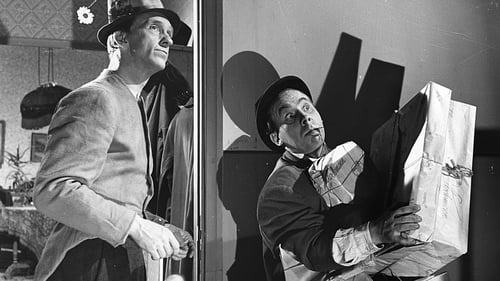
Päivystävä konstaapeli (uncredited)
Pete and Runt set up a kindergarten at their home, and unknowingly end up taking care of a kidnapped baby.

Janitor
Musical comedy about two friends trying to advance in music business at any price.

(uncredited)

(uncredited)
A cynical tale of two liquor smugglers, who struggle with life, love and lust. A seedy love triangle is unavoidable.

(uncredited)

(uncredited)

Customs officer Tapio goes undercover to reveal a smuggling ring, which operates within an entrainment troupe. While doing his detective work, he also gets to know the beautiful dancer Leila.

Andersson (uncredited)

Äimä
Journalist Sanni visits the countryside to write about the timber industry. Looking for a room she is immediately thrust into the merry community of loggers, always up for a song, but one of them, Hurma-Jussi, is a little too persistent. Luckily, she is “saved” by the handsome lumberjack Eräs.

(uncredited)

Andersson

(uncredited)
The streets of Helsinki, Finland, at night. Violence mixed with incidents and everyday life. Reported by police officers on the graveyard shift.

Jantuinen
Lasse Pöysti's directorial debut film. And Helena Plays On (1951) is based on Aino Räsänen's second novel of the same name in the Helena series. When the Winter War breaks out, Arttu (Jussi Jurkka), the son of Helena (Irma Seikkula) and Jari Junkkeri (Erkki Viljos), go to the front. Arttu proposes to his girlfriend Elina (Leena Häkinen), but the world events come in between. When he is not heard of at the end of the war, the relatives begin to believe that Arttu is dead - everybody else but not Helena.

(uncredited)
Based on a song by the same name. It was the Genre Popularizer for the Rillumarei film and live entertainment genre that drew from the musical couplet genre of light, cleverly written, often satirical songs. Many of these films were based on an existing song, or a song was specifically written to be the foundation of a film.

A handsome young womanizer deceive tender women by first charming them and then taking their money.

Simuna

In the late 19th century at Längelmäki two men kill a mailman and rob all the money he carried. Based on actual events.

(uncredited)

(uncredited)

Vähälä
Strong women take care of the property while the men focus on chasing women.

(uncredited)

Old man
The life story of Aleksis Kivi, author of the first Finnish novel in Finnish language and (posthumously) its most successful writer.

(uncredited)

(uncredited)

(uncredited)

(uncredited)
Martha's problem is balancing work and family. According to her husband Juho and father-in-law Kalle, the mother's place is at home with the child and not at work. Only her mother-in-law Ilona encourages Martta to advance in her career.

(uncredited)

Nuutinen
Bank manager wants to hire younger employees. Fired cashier decides to teach him a lesson.

Andersson (uncredited)

(uncredited)

(uncredited)
An artist bases a painting for a revealing lingerie ad on a photo of a girl he had found torn from a magazine, not knowing that the girl is in fact the daughter of the Finnish minister of finance. A scandal is about to erupt, and the artist is given 48 hours to find a strikingly similar-looking female model who could serve as his alibi. The minister's daughter decides to fool the artist by pretending to be a lowly girl of the streets, whom the artist then recruits as his "model".

(uncredited)
A young heiress settles into a holiday hotel in search of a suitable husband. There are enough groom candidates, some gentlemen, and some cheaters. All that is certain is that the misfortunes will not end.

(uncredited)
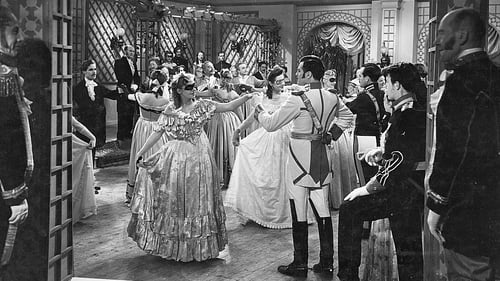
(uncredited)
At the eve of Crimean war orphaned Regina lives with her grandmother in a small cabin near a lavish villa. As the summer approaches there is great anticipation of a big ball to be held.

(uncredited)

Office Janitor (uncredited)
The film takes place in the summer and spring of 1940. Isä, the father, gets involved in the stock market and threatens the livelihood of the family.

(uncredited)

St.Petersburg, 1830. An arrogant Finnish baron is playing cards with a Russian officer. Needless to say, the Finn wins and the Russian gets extremely annoyed. The situation is not helped by the fact that the baron has been seeing a girl that the Russian officer has also set his eyes on. They decide to have a duel and after the Finn wins fair and square, he has to escape because the untrustworthy Russians are after him.

(uncredited)

After many years away a woman returns to her hometown in Lapland with her husband. There she falls in love with a handsome forester.

Master of Koskenalusta

(uncredited)
Rural comedy of the intrigues and stratagems involving a country wedding. From a comedy by Alexis Kivi.













































